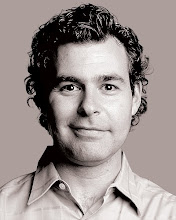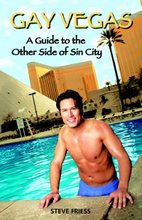
This week, I've finally started doing some reporting on the non-partisan race to replace Oscar Goodman as mayor of Las Vegas. The primary is April 5, there are 18 candidates in the scrum and the leader at the moment by all accounts is Goodman's wife,
Meadows School founder Carolyn Goodman. I spent some time with the couple the other night at a Martinis With The Mayor event and I have a sit-down interview with Mrs. Goodman this afternoon.
But last night, I attended a forum featuring four Democratic candidates,
Councilman Steve Ross, county commissioners
Larry Brown and
Chris Giunchigliani and activist Katie Duncan, put on by Si Se Puede, a Hispanic Democratic group. Carolyn Goodman, a registered independent, and
Victor Chaltiel, the wealthy and free-spending Sheldon Adelson-backed Republican, were not invited because they're not Democrats.
I live-tweeted the event, which was emcee'd by ex-U.S. Rep. Dina Titus, who seemed to relish in taking (loving?) shots at the current mayor. At one point, in asking about graffiti prevention policy, she quipped: " "Do you agree with removing thumbs or do you have other ideas?" Later, when a question arose about being a spokesperson for the destination, she wryly noted to the audience before letting the quartet answer: "I don’t think any of these candidatess would go to a fourth grade class and say the only thing they would want on desert island is a bottle of gin."

But a few other moments stood out involving the two fellows to your right, Ross (left) and Brown. [Photo from Twitpic courtesy of
@TheLMurrieta]
First, the candidates were asked their views on education and
the DREAM Act, the federal bill that would create a path to citizenship for immigrant students who have lived in the U.S. for a certain length of time but are not legally here. It's important to the immigrant community because so many of these kids have been raised in the U.S. despite their undocumented status -- which many may or may not even kn0w -- and then cannot get college loans because they're not legal residents.
The point is, the DREAM Act is one of the most significant pieces of the Hispanic Democratic agenda and the candidates are appearing before an Hispanic Democratic group. It's been in the news constantly for years and, in fact, Sen. Harry Reid's championing of it helped rally the Hispanic vote that is
widely credited with his victory last fall.
So what was the response of Ross, generally seen to be in fourth or fifth place in the polls for mayor?
"I don't know enough about that to answer one way or the other."
Huh? How is it even possible for a candidate -- nay, an elected official -- to not know something this basic? Either he's tragically ignorant or he didn't want to give his true answer because he knew the group wouldn't like it, but either way it looked awful for him.
The other thing was County Commissioner Larry Brown saying he would support repeal of Nevada's domestic partnership law, which passed two years ago. Ross said he would support repeal, too, but he had already been endorsed by the conservative group Nevada Concerned Citizens so that wasn't a surprise.
This actually matters a great deal and here's why: If the next mayor of Las Vegas is seen as hostile to gay couples, it would be disastrous to the decade-old efforts to aggressively court GLBT tourists to the destination. It was former Mayor Jan Jones way way WAY back in the 1990s who was only the second big-city mayor in America to endorse gay marriage -- Willie Brown of San Francisco was first, of course -- and then Jones took that message into her gig as a veep with Harrah's. There is a straight line from Jones' early and vocal support of marriage equality to the world's biggest gaming company's revolutionary efforts to court gay travelers to MGM and Wynn catching wise to the lobbying efforts that resulted in the domestic partnership law. The casino industry knows this is a very, very important and sensitive minority. The gay media will go nuts if there's even a whiff that Las Vegans have elected an anti-gay mayor.
So it matters if Brown, who is either second or third in the polls and has a 50/50 chance of facing off with Carolyn Goodman in the June general election, is in favor of stripping gay Nevadans of hard-won rights. Oscar Goodman as equally full-throated as Jones in his support of gays and gay business and culture, even appearing as half of a gay couple
in a gay "Christmas Carol" spoof. (Chris G., the other candidate jockeying for second place in the primary, has long been an ardent pro-gay activist.)
The way the question was asked at the forum, however, the candidates were only allowed to give a yes or no answer. Near the end, Titus said she had received a request to ask the candidates to explain their views on domestic partnerships but she felt it had already been answered so she replaced it with some milquetoast question about general mayoral qualifications.
Afterward, then, gay activists
Derek Washington,
Laura Martin and
Chris Miller chased Brown for an explanation but, uh, he ducked into the bathroom. When he came out, he was ready to talk to them but they weren't nearby so instead he sat down with me for a half-hour for my story.
Here's the odd exchange we had on that topic:
Friess: There’s a gaggle of gay activists who are waiting to ask you this. The question was, do you support repealing…
Brown: I’ve got to talk to Derek, because he has to explain to me first of all what the state law is and what we do at the local government in interpretation of it. I was the first one to answer out of that. I have to make sure what I answered yes or no to.
Friess: You answered yes to repealing the domestic partner law.
Brown: And I think they said that came from a Nevada Concerned Citizens survey. I’ll stand by the answer and I’ll have Derek and the other guy who’s chasing me around explain the background and the history, the status, how it affects local government. I remember having these conversations two years ago [when he was running for County Commission] because it was a partisan race. My concern back then was, separate fromt eh state law because I’m not real sure what it says …
Friess: I can tell you what it says. The law basically allows same-sex couples or non-married heterosexual couples to register as domestic partners and it grants them any rights that are given to married couples within the state.
Brown: And my big discussion two years ago is, what impact that has on the local government. It doesn’t matter if it’s a domestic couple or boyfriend-girlfriend or whatever gender, whatever, what impact fiscally does it have? So if it’s state law and the city has adopted it, I would have to be educated better.
Friess: Where do you stand on gay marriage?
Brown: Gay marriage or civil marriages or…
Friess: Do you think a gay couple should be able to get married either in the state or in the country?
Brown: Uhh, I’d have to get, uh, there’s some conflicting beliefs. Some conflicting beliefs.
We moved on to other topics at that point. But, again, I'm baffled -- as I was with Ross and the DREAM Act -- that a major elected official hasn't given serious thought to an issue like this. He doesn't know where he stands on gay marriage? Or civil unions? Or domestic partnerships? Doesn't he pay even a passing notice to the news? Is there even a week where there's not some gay news in the mainstream press nowadays? Is it credible for a Clark County commissioner, arguably one of the eight or nine most powerful people in the state, to claim he needs to be "educated" on this?
I'm not beating the gay-rights drum here. I'm not. I'm just saying that people running for public offices at this level ought to have a familiarity with the most significant social issues of the day. Telling an Hispanic group you don't know what the DREAM Act is is lethal to a candidacy. Telling the world that you oppose a domestic partnership law that was passed with a veto-proof majority in the state legislature could be extremely harmful to your city's main industry, tourism.












